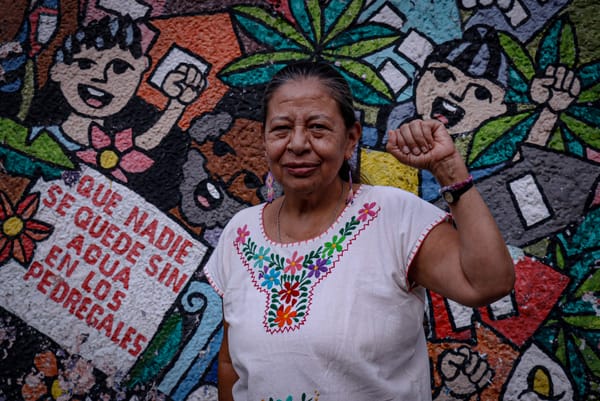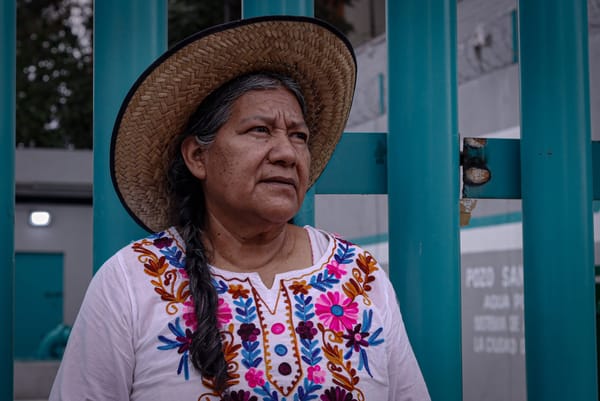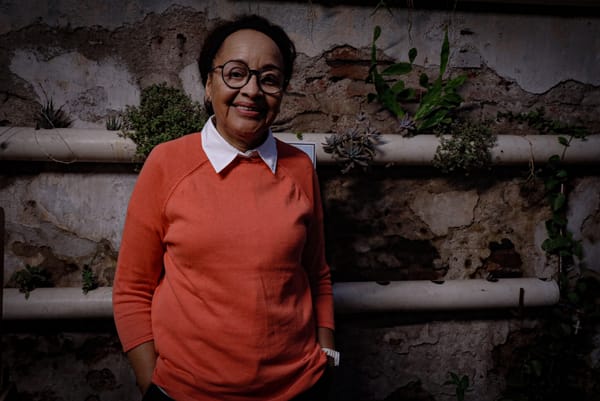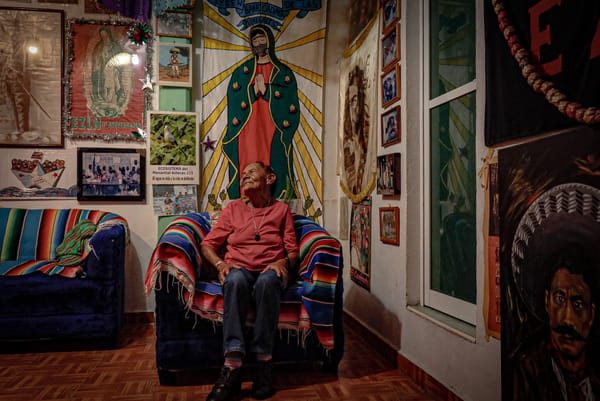Faces of Water: Water that nourishes
As soybean plantations and cellulose plants drain Uruguay's water supply, activists like Sofía Taranto seek other ways to care for the resource.
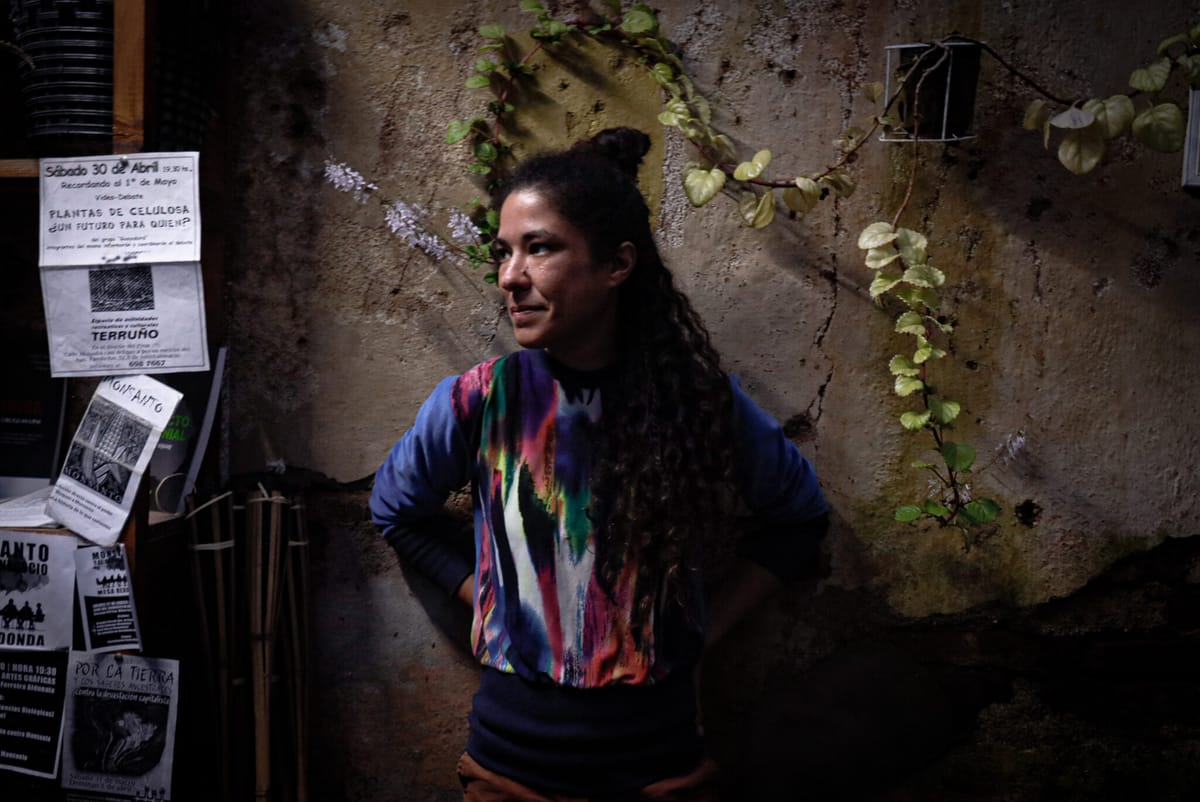
Sofia Taranto flits quickly between those attending the activities that she organizes with her partner, Marcelo Cabrera, in Charamusca, the free school they founded in their home in Melilla, Montevideo. In addition to receiving the visitors, she organizes the space, presents the activities, shares her reflections and experiences in social and environmental movements in Uruguay, prepares vegetarian hamburgers and prepares mate.
She is 32 years old, with a thin complexion, long, curly hair parted in the middle and a shy but friendly smile. A descendent of the Charrúa nation and part of the Jaguar Berá community, she opens the doors of a giant wardrobe and releases scents and colors of the herbs she uses to prepare natural medicines.
Sofía was born and raised next to the Santa Lucía river, the same river that crosses six of Uruguay’s departments, supplies Montevideans with freshwater and reached its historic lows in may 2023—unleashing, in part, the water crisis.
San Ramón, in Canelones, is the city of Sofia’s childhood, where, without knowing it, she became a water defender. As a teenager, she got together with friends from the neighborhood to clean up trash on the banks of the Santa Lucía river and plant native trees to form a park. From early in life, she founded her own tradition: caring for the water and land in community.
“Water brings together all struggles, because it is vital, fundamental,” Sofía says. “All extractive projects seek out water, and here they aren’t even charged for it, when the majority of the population is paying to consume water.”
In 2016, she led a signature campaign to ban soybean plantations –the same ones that have eroded the water quality of the Santa Lucia– in Canelones, an agricultural department par excellence and the country's main food producer. Although the plantations have been banned in some of the department, in the absence of regulation, Sofia says that they continue.
Once she moved to Montevideo, she joined the committee of students fighting for land and water at the public university, where she studied psychology. And in 2022, after the Covid-19 pandemic stifled the climate of social protest, she formed the Coordinadora por el Agua collective, which the following year was key to articulating the street protests against the water crisis.
Sofía knows that the defense of water “did not begin with us, nor will it end with us.” Although sometimes she feels inclined to say “enough, everything is getting worse, I won't do anything else,” she always comes back to the same conclusion: “I cannot do nothing.”
Text: Flor Pagola, Caro Bas, Madeleine Wattenbarger and Eliana Gilet
Photo: Lizbeth Hernández
Design: Paola Macedo
This story is part of Faces of Water: Stories of Women Defending Water in Montevideo and Mexico City, a project by the Cooperativa de Periodismo and Kaja Negra, supported by the 2024 ColaborAccíon grant from the Fundación Gabo and Fundación Avina.
